Portsmouth plaque reveals hidden history of women activists
- Published
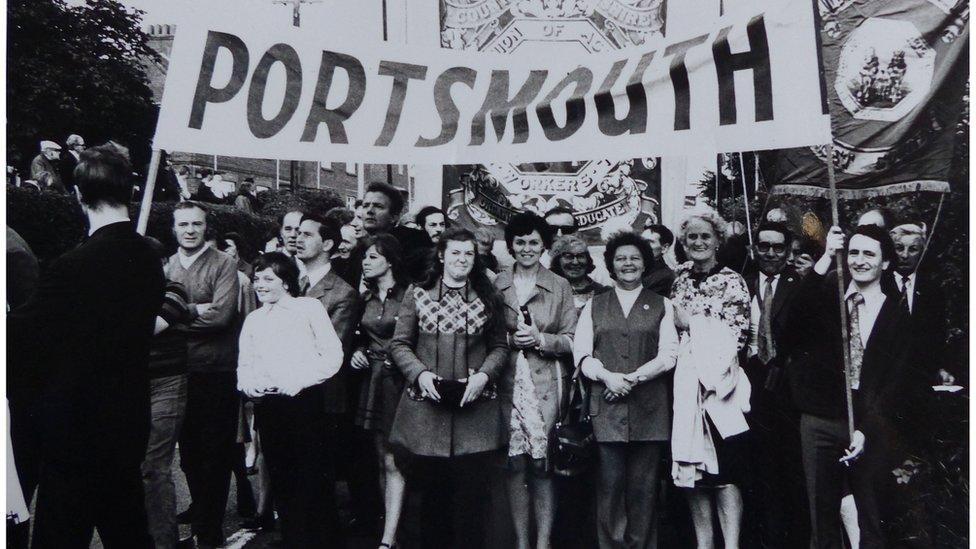
Women activists are eclipsed from Portsmouth's history, Dr Laurel Forster said
A stone plaque has been unveiled to show how women have shaped a city.
Organisers from the University of Portsmouth said traditional histories of the city often focussed on the activities of men.
The plaque celebrates the university's Women's Community Activism project, which recorded oral histories of female campaigners and pioneers from 1960s onwards.
Participants recalled working in areas including equality and the military.
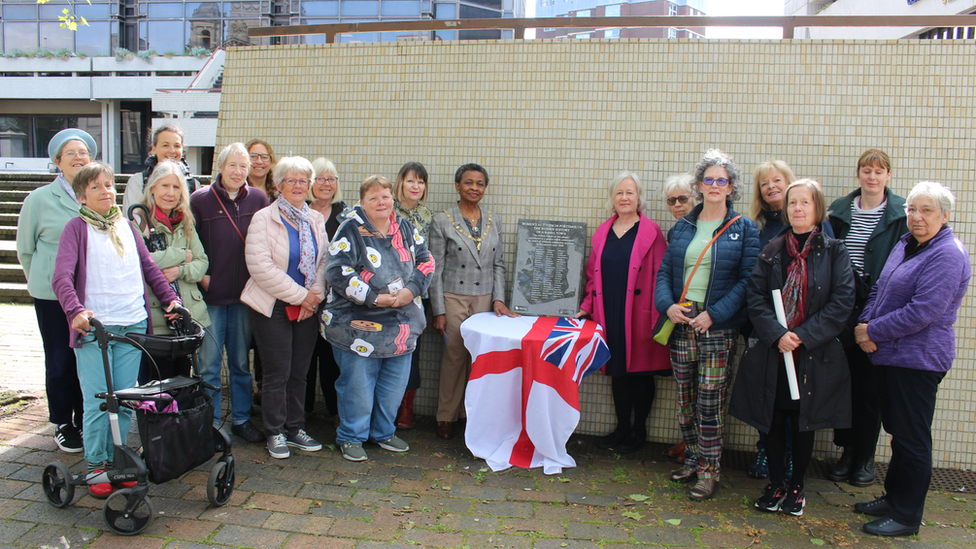
The plaque has been funded by Portsmouth City Council
Unveiling the plaque, Dr Laurel Forster, one of the project's leaders, said the aim was to redress the historical balance.
She said: "Portsmouth is a very famous naval city and has a huge dockyard as well. And both of those combined have always meant that the history of Portsmouth is predominantly a masculine history."
Marie Costa, Lady Mayoress of Portsmouth, said: "You don't have many statues [of women]. Even women in the forces are not seen anywhere or presented anywhere."
Sally Thomas, who became a city councillor in 1976, worked to preserve homes for local families.
She told researchers: "The council were knocking down old houses so we went up and we stood in front of the bulldozers.
"My fellow councillor... was knocked through a window. A number of women were arrested and put in the cells."
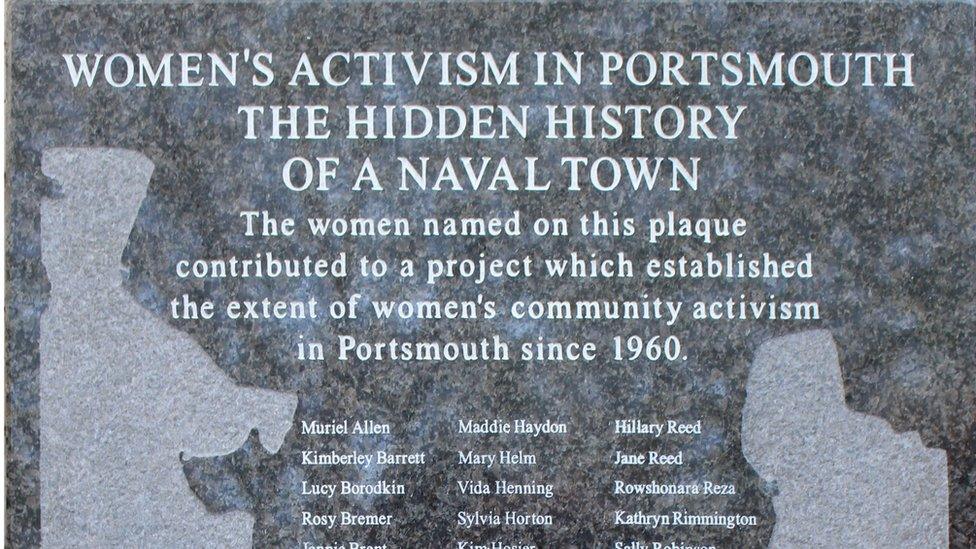
The plaque will become a permanent feature in Guildhall Square
Former Royal Navy officer Liz Walmsley recalled the "resentment" when women were first allowed to serve on ships in 1990.
She told the project: "There was an awful furore in the press. We had wives marching in Portsmouth against women going to sea stealing their husbands."
Carol Lupton said her Women's Aid group was the first in the country to produce an annual report.
She said it convinced funding bodies that the charity could handle grants "without men fussing around to see if we were doing the right thing".
The university said women from Portsmouth also supported the development of one of the earliest rape crisis telephone lines and attended Greenham Common peace camps.
The plaque, to be permanently situated in Guildhall Square, has been funded by Portsmouth City Council.
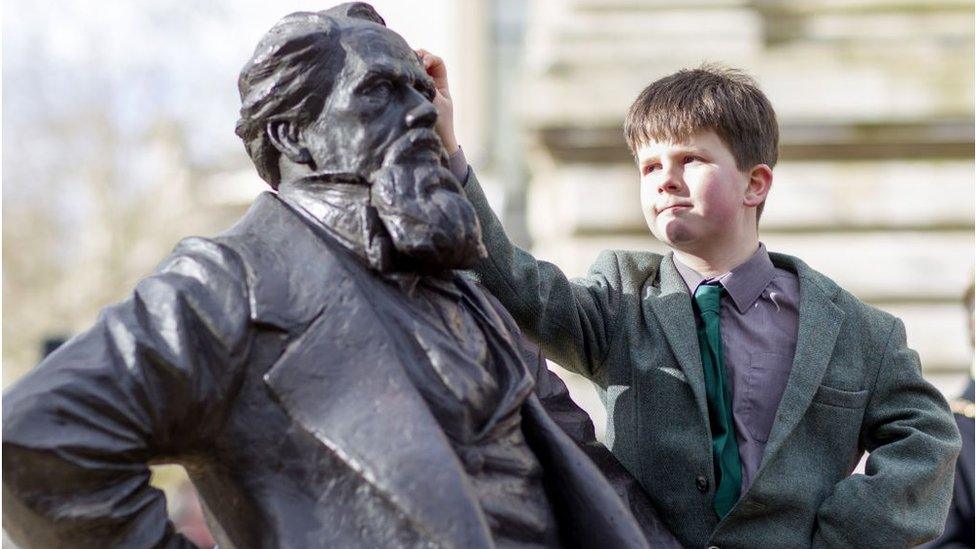
Portsmouth statues are mostly of men, Lady Mayoress Marie Costa said

Follow BBC South on Facebook, external, Twitter, external, or Instagram, external. Send your story ideas to south.newsonline@bbc.co.uk, external.
- Published9 May 2016
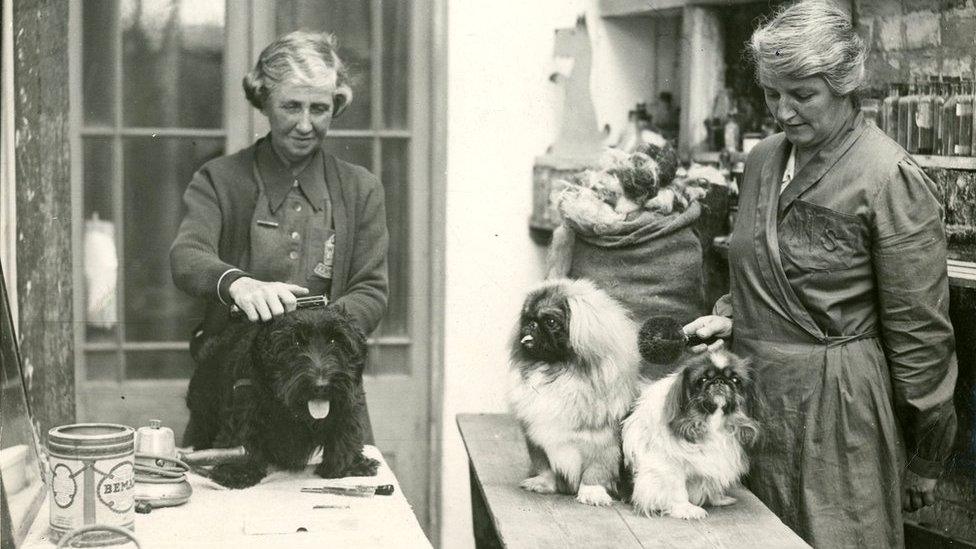
- Published25 April 2013